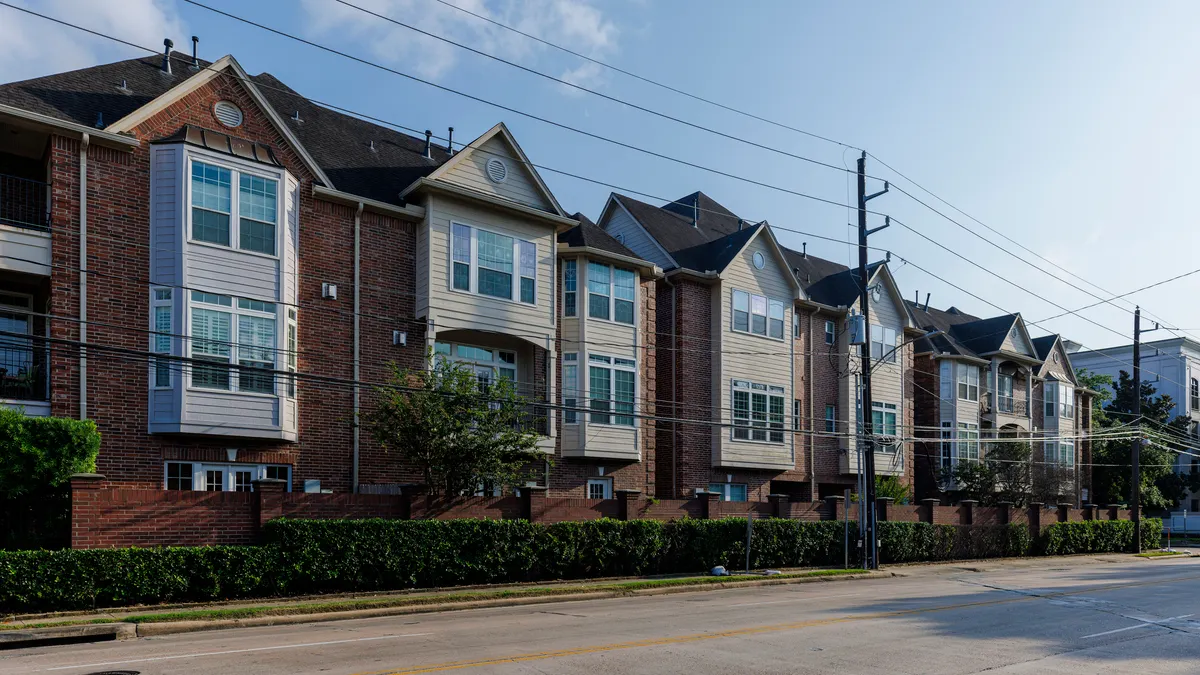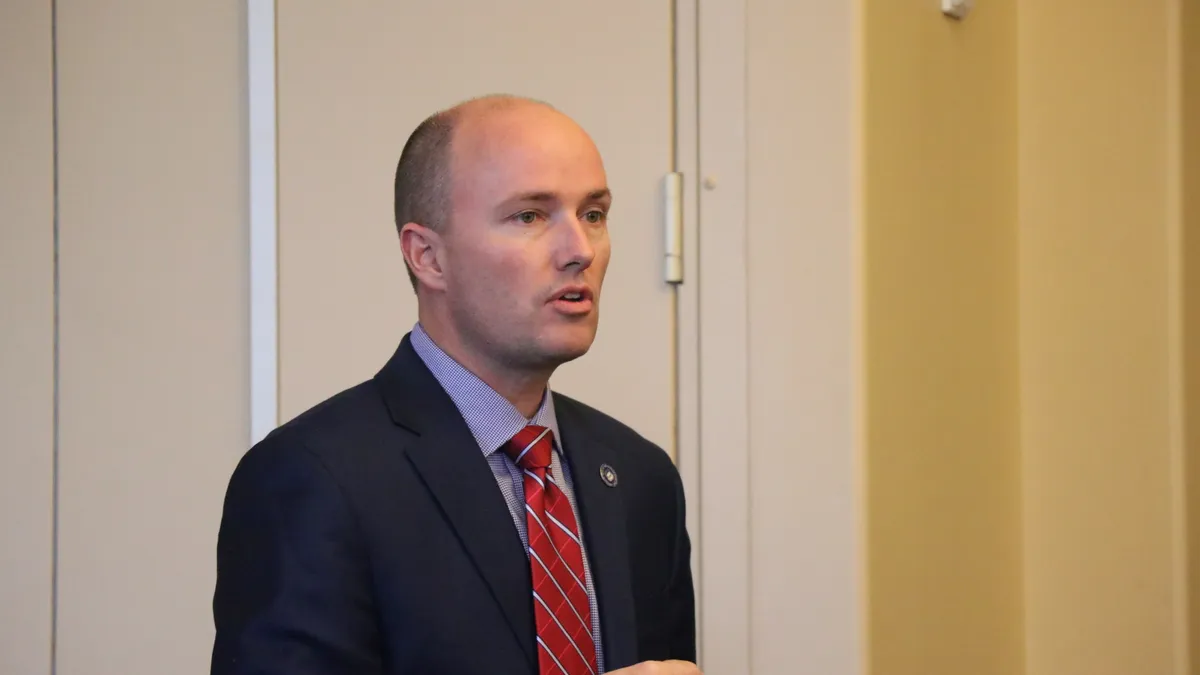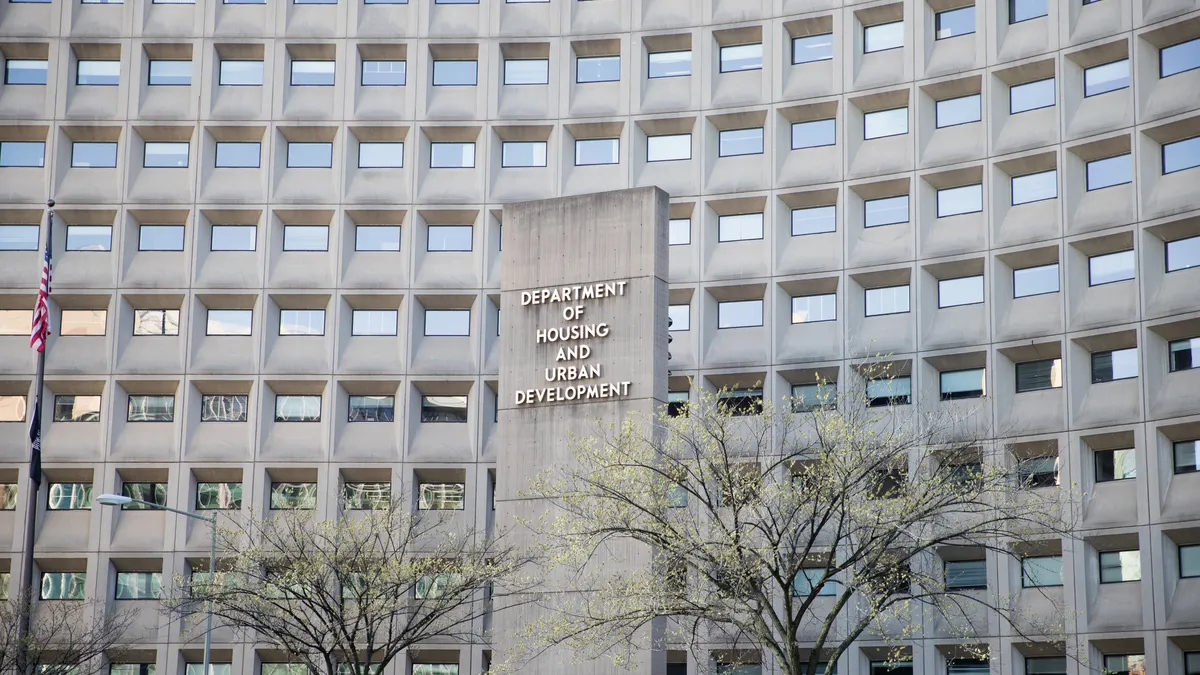It’s no secret that housing costs are increasing in cities and counties across the country.
But in Harris County, Texas, another concerning housing trend has been on the rise: evictions.
More than 76,000 eviction cases were filed in Harris County last year, representing about one in every 10 renter households. In February alone, Houston landlords filed 6,536 eviction cases — 53% above typical pre-pandemic averages.
One local court is working proactively to curb that trend, establishing its version of a national Eviction Diversion Initiative to educate people facing evictions about their rights and connect them with resources they may not know about.
The mission is to “lessen the number of evictions and mitigate the harm of evictions that do go through,” said Judge Steve Duble of Harris County Justice of the Peace Precinct 1, Place 2, which serves over 762,000 residents, more than 51% of them renters. This entails keeping tenants housed and connecting them with resources, he said.
Since the program launched in 2023, the court has seen a 3% increase in tenants represented by counsel, including a 65% increase in representation from the first quarter of 2024 to the third quarter of 2024.
An analysis by Houston Landing found default judgments in the court’s eviction cases — wherein a tenant loses the case by not showing up — fell 44% between January and November 2024.
The program’s impact earned it a 2024 American City & County Crown Communities Award.
“There are some strict deadlines in Texas on timelines for how we process things, but within that we can still do a lot of good and help people, which we strongly believe helps people’s faith in the judicial system,” Duble said.
Connecting people with resources
One of Duble’s first acts after assuming office in 2023 was to apply for a two-year $150,000 grant from the National Center for State Courts to help build the eviction diversion program.
A longtime litigator, he’d witnessed people’s struggle and confusion when confronted with the legal process of an eviction — and he saw missed opportunities to connect people with resources.
The NCSC grant, awarded in fall 2023, helped fund a full-time eviction diversion facilitator position for the court.
The court also received a $25,000 grant from the Texas Bar Foundation to create a free legal resources center that includes materials to help people better understand the legal process and better represent themselves.
“We’re already sending citations out to everybody; it’s no big deal to slide an access to justice notice in there,” Duble said. “It’s worth it.”
The face of the program
As the eviction diversion facilitator, Loreta Kovacic is the face of the program for tenants.
A musician and former school teacher, Kovacic proactively contacts defendants to ensure they know their court dates in order to reduce default judgments.
Kovacic then connects litigants to legal aid and rental assistance if they qualify. After a decision in their case has been made, she connects them with employment resources and social services to help with any immediate housing needs.
“I feel very grateful to be able to do this, because I’m able to help people who are looking for help with resources in times of need when it’s really, really important,” Kovacic said. “It’s a time when people are really facing not one but 25 different issues in their lives.”
Increasing access
In addition to providing ample information to tenants ahead of their court dates, the precinct has championed a hybrid courtroom so defendants can appear in person or over Zoom, which can make a big difference, Kovacic said.
“Most people have phones, but they may not have transportation,” she said.
It’s also an important factor when childcare is involved, said Derek Kelly, who oversees special projects and community engagement for Harris County Justice of the Peace, Precinct 1, Place 2.
“It’s astonishing how many of the folks who are being evicted have children,” Kelly said. “The official record does not tell us if there’s children. We’ve only been able to collect that data through surveys. But over half of the cases have a child involved.”
Defendants appearing over Zoom can also be placed in a separate breakout room to speak with Kovacic and talk to legal aid.
Offering the hybrid option “helps us increase access to justice,” Duble said. “It’s frankly easier for everybody — and better for the environment.”
A “win-win” for everyone
Tenants aren’t the only beneficiaries of the program.
“By connecting folks to rental assistance or other benefits, that’s people who can pay their rent, and landlords definitely want people who can pay rent and stay in their home,” Kelly said. “Turning over an apartment costs time and money.”
Having landlord buy-in and input helps the program flow, and so far the court has had a high number of repeat landlord litigants.
“We’ve got several that we’ve developed good relationships with,” Duble said. “I think they view this as a win-win.”
Duble encourages other courts to reach out to organizations such as The Eviction Lab for resources and experts to help curb evictions.
“I think we all know that there is a housing crisis in this country and a homelessness crisis,” said Kelly, “and so this is a really affordable way to address that and help people with housing stability.”



















